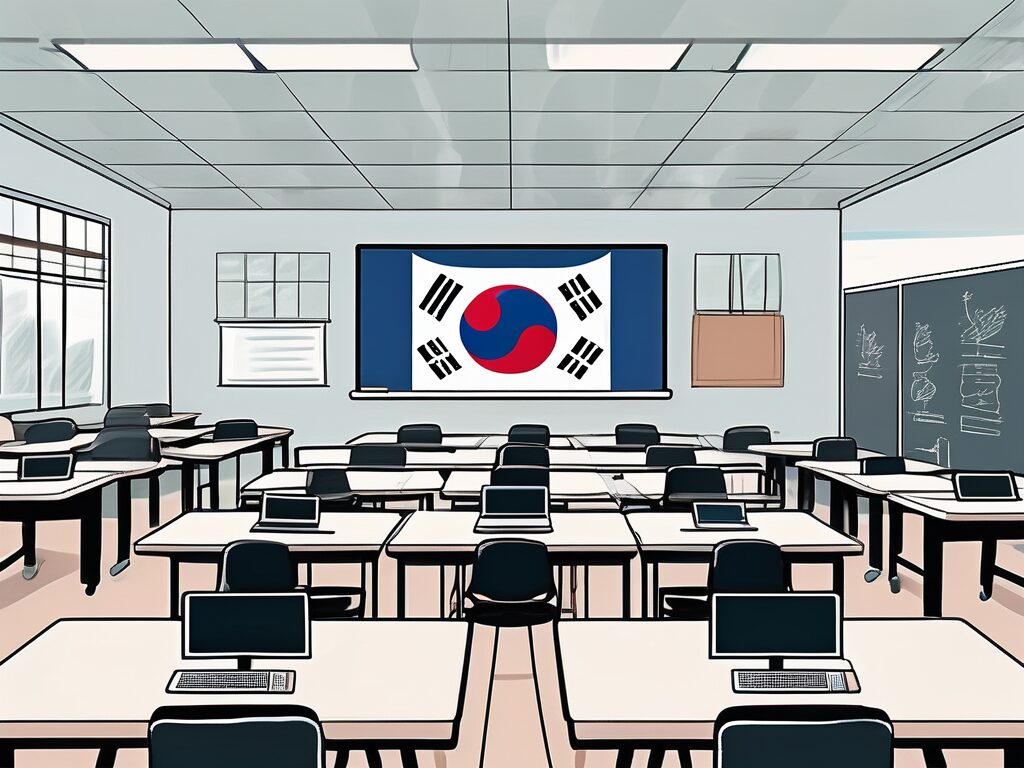Top 10 Education Challenges in South Korea for 2025
South Korea is widely recognized for its exceptional educational achievements, consistently ranking among the top nations globally. However, this success is accompanied by a myriad of challenges that educators and students face within the system. This guide aims to provide education consultants with a comprehensive overview of the key challenges in South Korea’s educational landscape, offering insights into potential strategies for improvement.
1. Academic Pressure and Stress
High-Stakes Examination System
The South Korean education framework is characterized by its reliance on high-stakes assessments, particularly the College Scholastic Ability Test (CSAT). This pivotal examination significantly influences university admissions and subsequent career trajectories. The immense pressure surrounding this single-day test often results in elevated stress levels among students, necessitating a reevaluation of assessment methodologies.
In contrast, educational systems such as that of the United Kingdom employ a series of examinations over a two-year period (A-Levels), promoting a more balanced evaluation approach. The South Korean model’s emphasis on a singular assessment raises concerns regarding its impact on critical thinking and creativity.
2. Extended Study Hours
Students in South Korea are known for their extensive study hours, often engaging in private tutoring sessions, or hagwons, after regular school hours. While this commitment to education is commendable, it can lead to student burnout and an imbalance in life. Comparatively, Finland’s educational model, which emphasizes fewer hours in school while achieving superior international performance, suggests the need for a more sustainable approach to education.
3. Teacher-Student Interactions
Traditional Teaching Methodologies
Historically, South Korean classrooms have been dominated by an authoritarian teaching style, where educators primarily deliver lectures and students passively absorb information. This pedagogical approach may inhibit creativity and critical engagement among students. In contrast, many Western educational systems advocate for student-centered learning, fostering interactive and participatory classroom environments.
4. Expectations and Professional Pressure on Educators
Teaching is a highly esteemed profession in South Korea, with educators held to rigorous standards. While this respect is advantageous, it can also impose significant pressure on teachers to maintain an image of infallibility. This expectation may deter educators from exploring innovative teaching methods due to fear of failure. In contrast, educational environments in countries like the UK promote a culture of continuous professional development, recognizing the human aspect of teaching.
5. Curriculum Limitations
Emphasis on Rote Learning
The South Korean education system has traditionally prioritized rote memorization, compelling students to memorize information for examinations. This approach can restrict the development of critical and creative thinking skills, which are essential in today’s dynamic workforce. In contrast, educational frameworks in countries such as Australia emphasize problem-solving and critical thinking, equipping students for future challenges.
6. Narrow Subject Focus
The curriculum in South Korea predominantly centers on core subjects, including Korean, mathematics, and English. While these subjects are vital, this narrow focus may limit students’ exposure to diverse disciplines such as the arts, physical education, and social sciences. In comparison, countries like Canada offer a more varied curriculum, promoting a holistic educational experience that nurtures a broad range of interests and talents.
7. Global Competitiveness
As South Korea strives to maintain its position as a leader in global education, it faces the challenge of adapting to an increasingly competitive international landscape. This necessitates a continuous evaluation of educational practices and the integration of global best practices to enhance the quality of education.
8. Integration of Technology
The rapid advancement of technology presents both opportunities and challenges for South Korean education. While there is a growing emphasis on incorporating technology into the classroom, disparities in access and training can hinder effective implementation. Education consultants should advocate for equitable access to technological resources and professional development for educators.
9. Mental Health Awareness
With the rising levels of academic stress, there is an urgent need to address mental health issues among students. Educational institutions must prioritize mental health support services and create an environment that fosters well-being alongside academic achievement.
10. Need for Educational Reform
To address these multifaceted challenges, South Korea must embrace educational reform that prioritizes student well-being, innovative teaching practices, and a more balanced curriculum. Education consultants play a crucial role in guiding schools through this transformation, ensuring that they remain competitive and effective in preparing students for the future.
Conclusion
While South Korea’s education system boasts numerous strengths, it is imperative to acknowledge and address the significant challenges it faces. By learning from global educational practices and fostering a culture of innovation and support, South Korea can enhance its educational framework, ultimately benefiting both students and educators.
Enhance Your Teaching Career with IPGCE
As South Korea navigates the complexities of its educational landscape, international educators seeking to refine their teaching methodologies and career trajectories can benefit from the International Postgraduate Certificate in Education (iPGCE). This program is designed to empower teachers by overcoming barriers related to stringent qualifications, limited career advancement, and professional isolation. By enrolling in the UK’s premier teacher training course, educators can enhance their qualifications, connect with a global network of professionals, and achieve a harmonious balance between work and further education. Take the next step in your professional journey—Join the UK’s #1 Teacher Training Course today.

